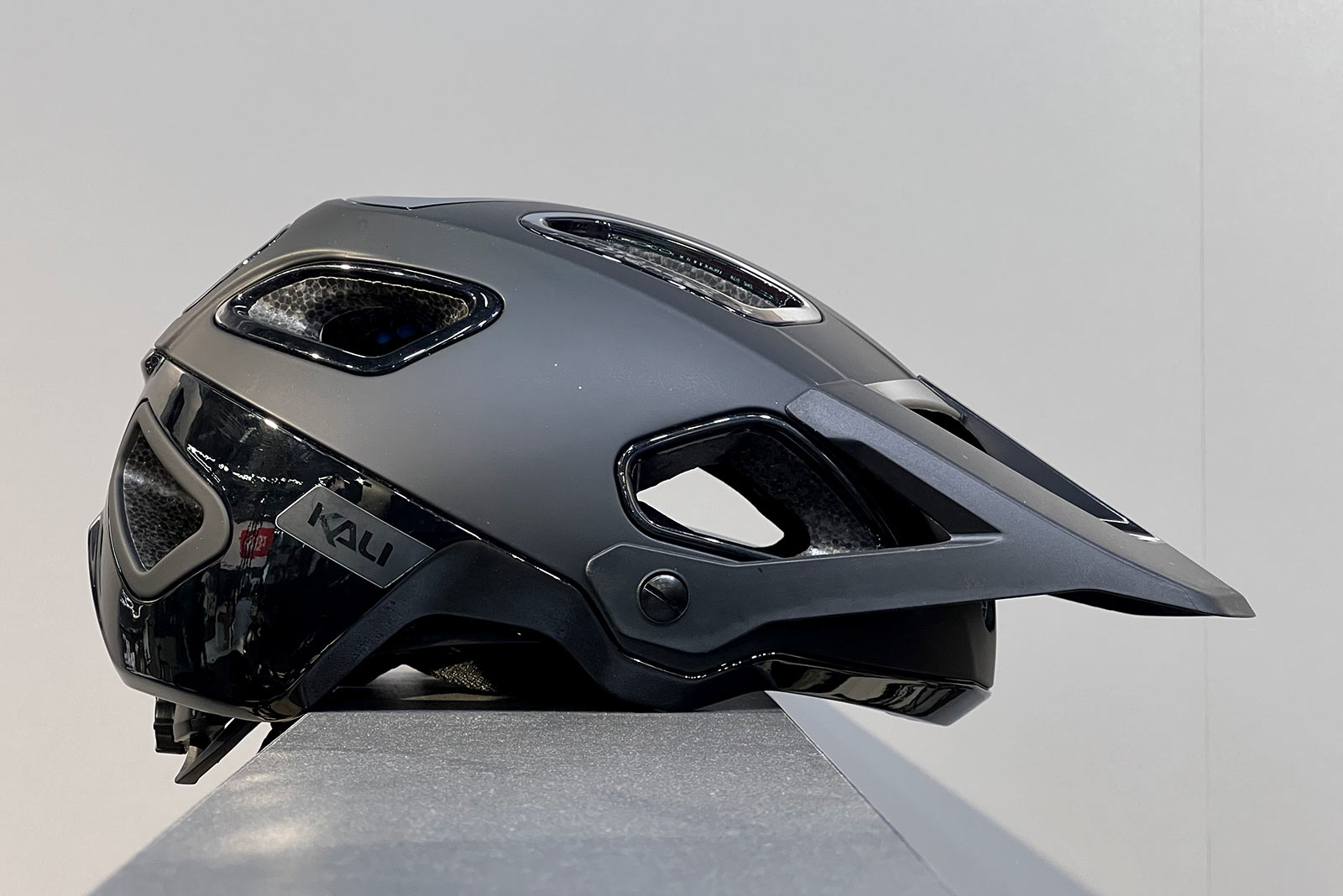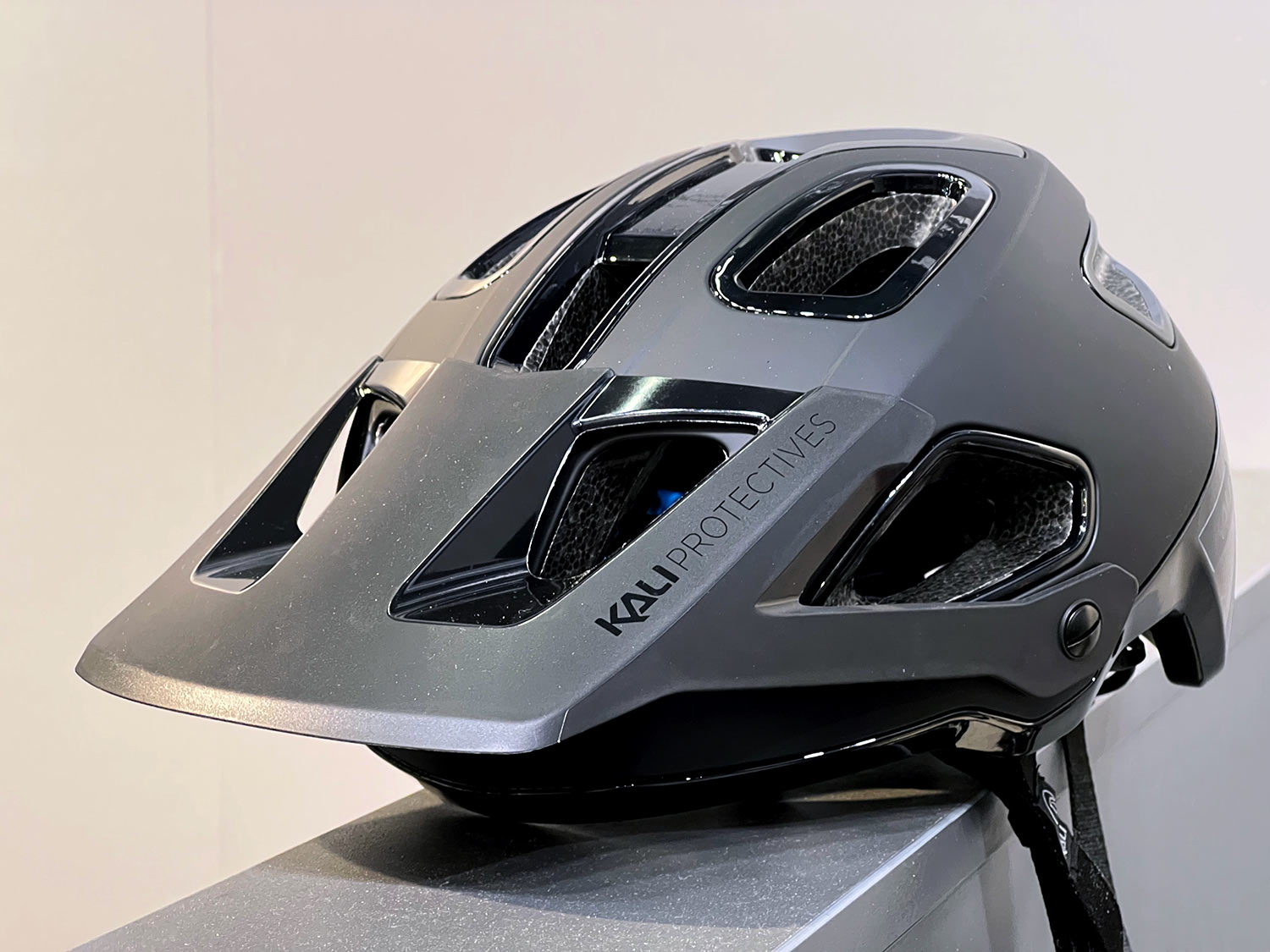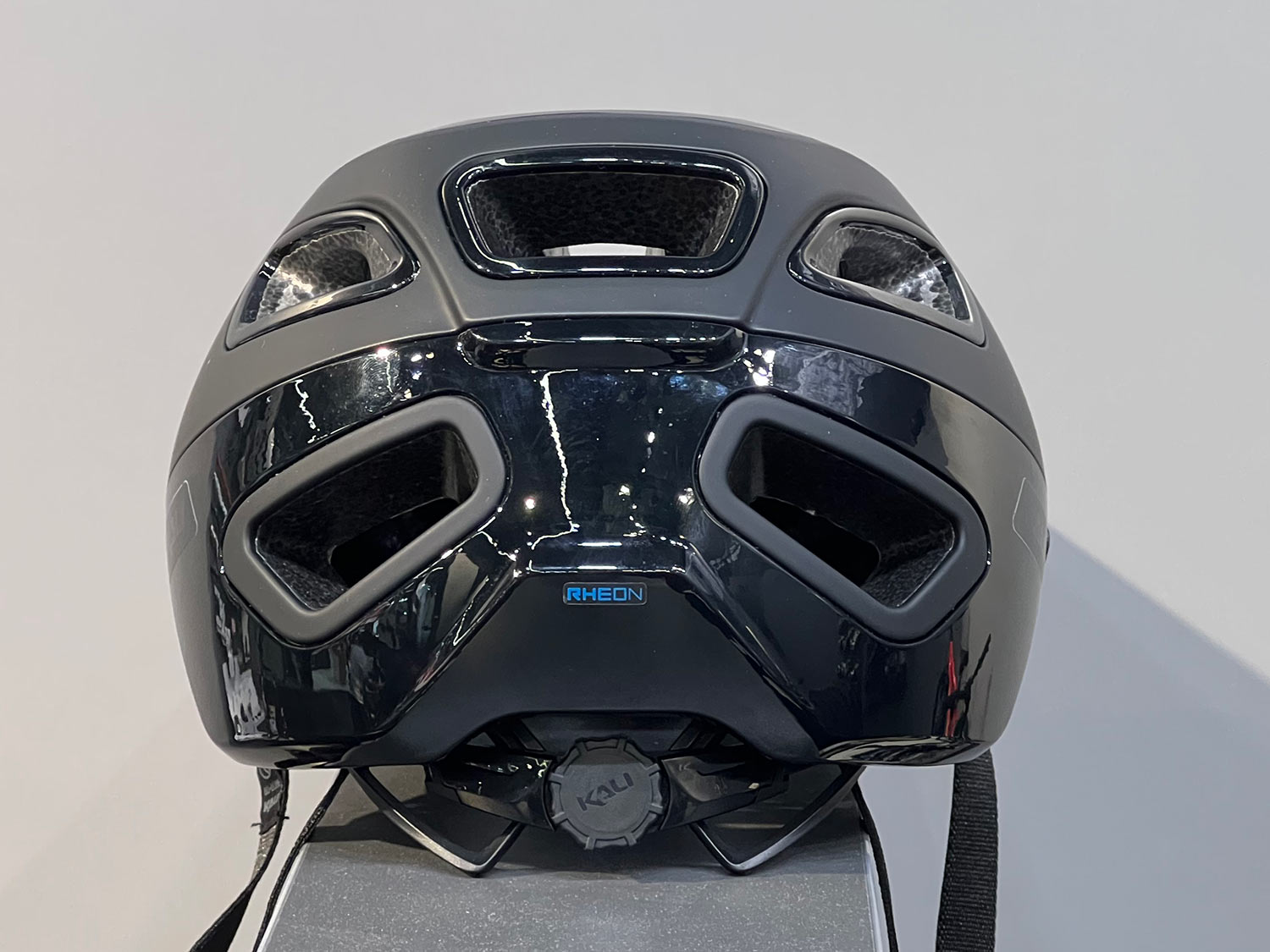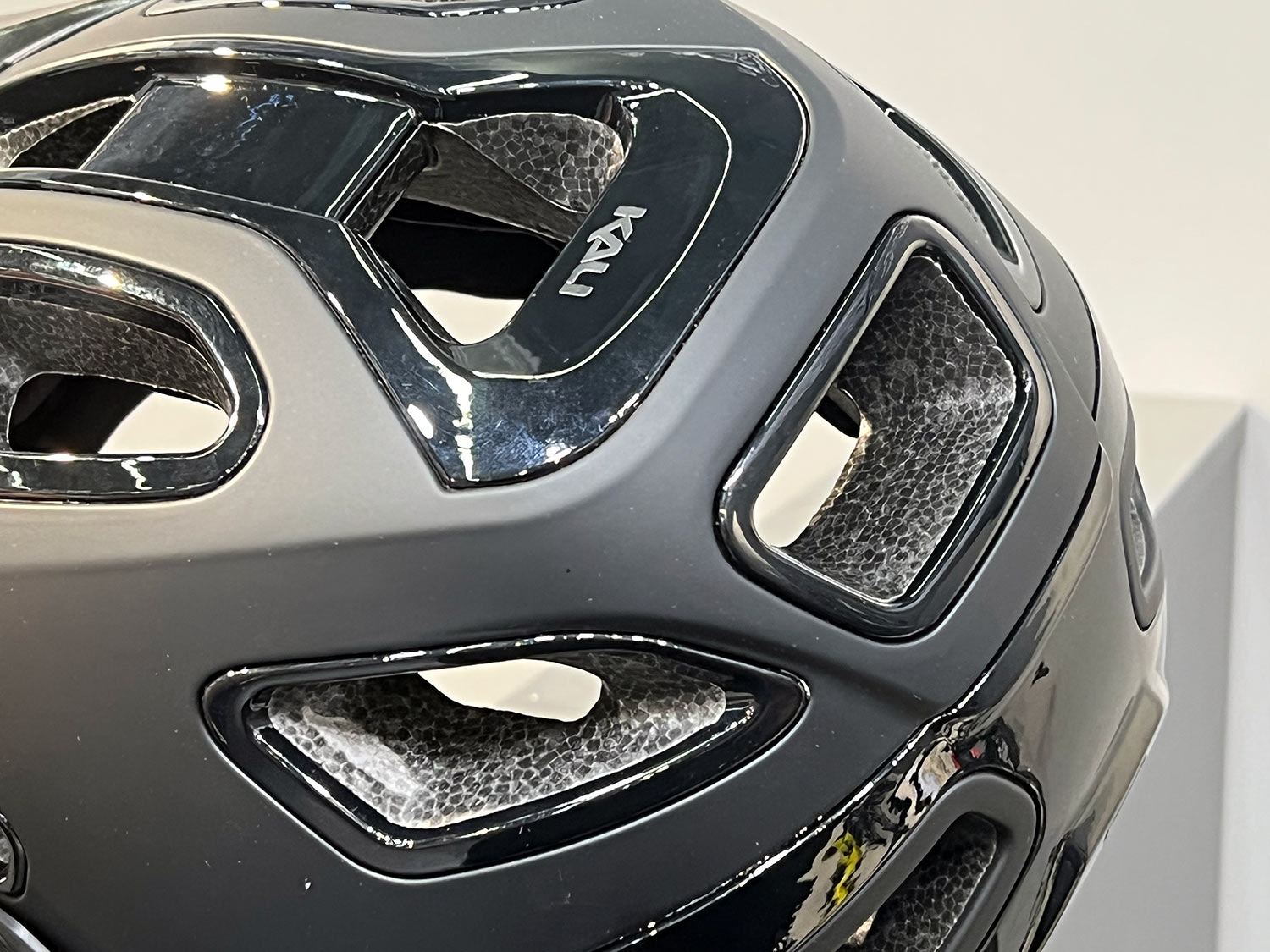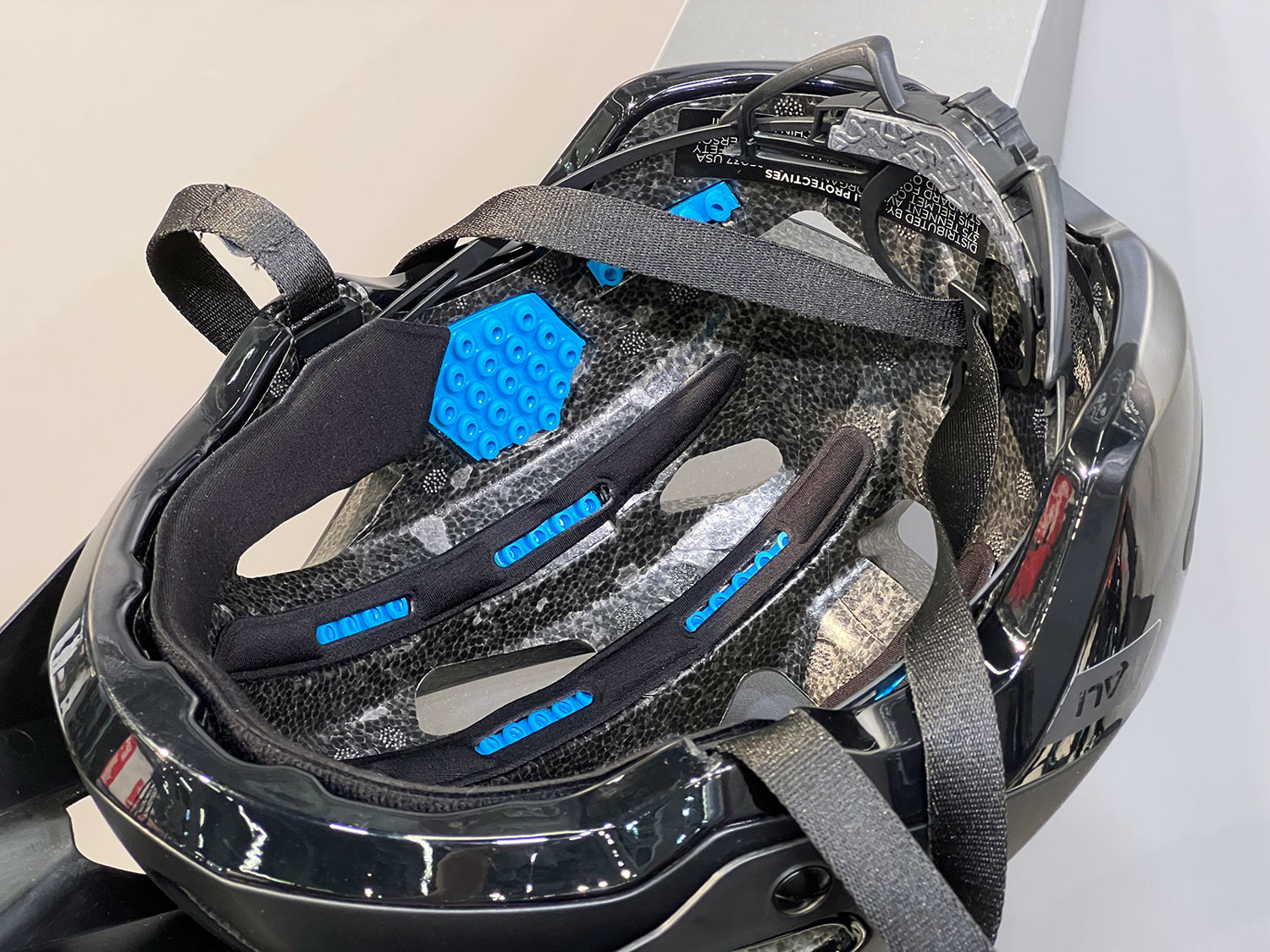The Kali Cascade is their most ambitious mountain bike helmet yet, and that’s saying a lot considering the innovations the brand has brought to market over the years.
In addition to dual-density, shaped EPS foam and rotational-impact-mitigating Rheon padding, they’ve reduced the CO2 emissions more than 58% over standard bicycle helmet construction.
Starting at the top, the multi-position adjustable visor is made with recycled plastics from Oceanworks, which reclaims it from the sea.
The EPS is 80%+ recycled, the straps are recycled PET, and the internal padding is made from bamboo.
“We are not a sustainability company. Safety is and always has been the fundamental decision driver for Kali,” says Brad Waldron, founder and lead engineer.
“Starting to add eco-friendly elements is something every company can do. We didn’t invent recycling EPS, reclaimed ocean plastics, grow our own bamboo, or collect PET bottles. We made the choice to take advantage of what experts have provided. It is not cheap, but it is an investment we plan to expand to more parts of our line.”
The Kali Cascade uses their SuperVents, reinforced vent surrounds that spread impact forces over more of the helmet’s surface.
Inside, the EPS uses their ConeHead dual-layer design, putting a lower-density (softer) EPS foam closer to your head, with specific shaping to further dissipate impact forces over a larger area (thus minimizing the forces going straight into your head).
Inside, the RHEON Low Density Layer padding (blue) is their anti-rotational-forces solution. The small tubes deform, allowing the helmet to twist slightly while also acting as a final cushioning element to soften a blow.
The Cascade has 13 vents and gets a magnetic Fidlock closure. It’ll come in three sizes (XS/S, S/M, L/XL) and has a claimed weight of 318g (the size S/M came in at 381g on our scale). Retail price is $260, available now…only in this matte/gloss black.
